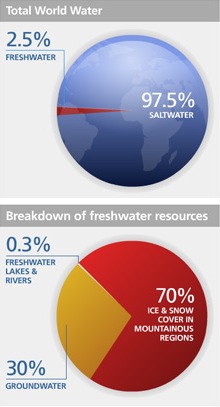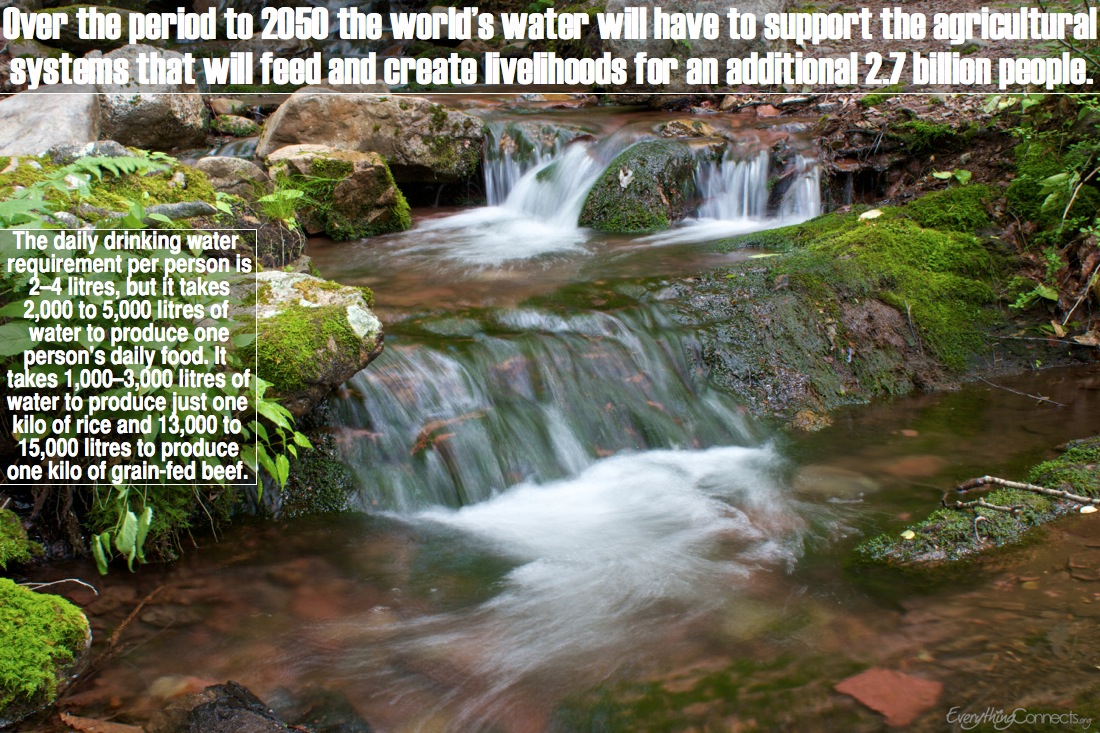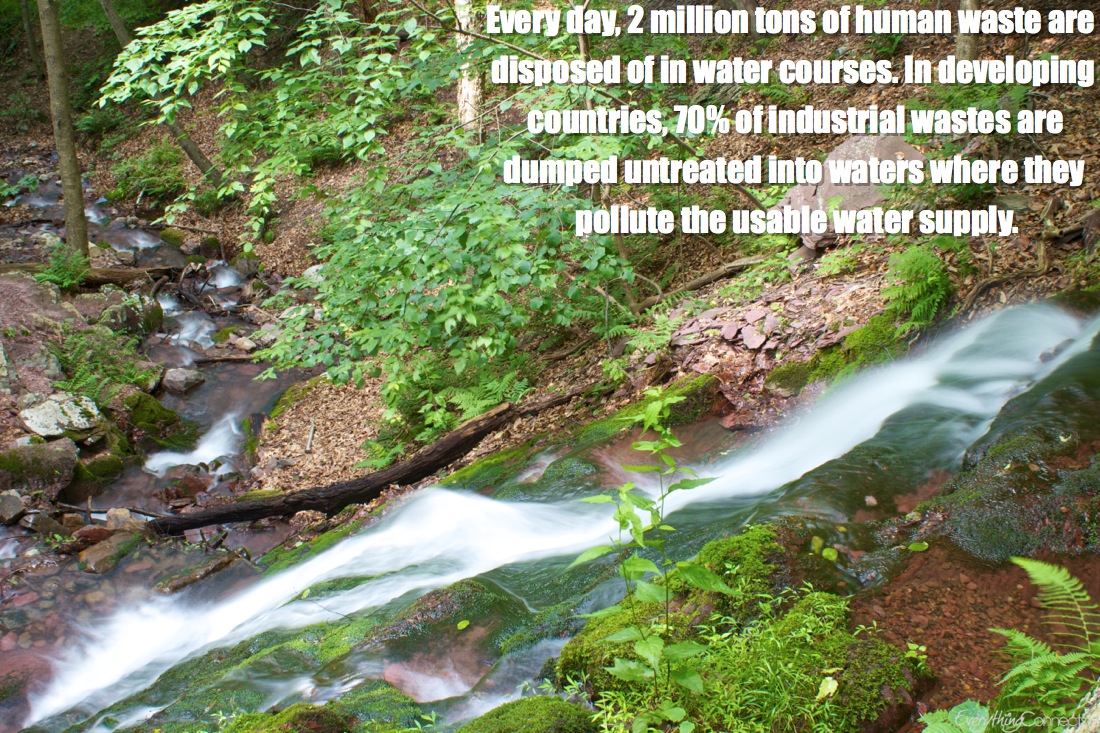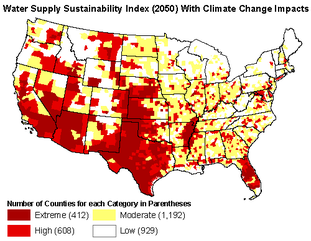Fresh Water
|
Navigation
According to UN-Water, "The Intergovernmental Panel on Climate Change predicts yields from rain-dependent agriculture could be down by 50 percent by 2020. Due to climate change, Himalayan snow and ice, which provide vast amounts of water for agriculture in Asia, are expected to decline by 20 percent by 2030. Over 1.4 billion people currently live in river basins where the use of water exceeds minimum recharge levels, leading to the desiccation of rivers and depletion of groundwater. In 60 percent of European cities with more than 100,000 people, groundwater is being used at a faster rate than it can be replenished." Visit FAO's global information system on water and agriculture, AQUASTAT, to discover information on water resources, water uses, and agricultural water management on global, regional, and national levels: "Rest assured, the world’s supply of drinkable freshwater is depleting — fast," as described in the book, Running Out of Water: The Looming Crisis and Solutions to Conserve Our Most Precious Resource.
The Great Lakes account for over 80% of North America’s surface freshwater and provide drinking water to 40 million U.S. and Canadian citizens. Discover how the freshwater these lakes contain are being threatened by climate change. |
|
|
“We never know the worth of water till the well is dry.” ~Thomas Fuller
|
According to a study published in Nature, "Unsustainable depletion of groundwater has recently been documented on both regional, and global scales. We estimate that the size of the global groundwater footprint is currently about 3.5 times the actual area of aquifers and that about 1.7 billion people live in areas where groundwater resources and/or groundwater-dependent ecosystems are under threat." |
The United Nations World Water Development Report 3: Water in a Changing World - Facts and Figures
Your browser does not support viewing this document. Click here to download the document.
|
via chartsbin.com
|
Global warming will increase the risk of water shortages in one-third of counties in the continental United States by 2050. More than 400 of these counties will face extremely high risks of water shortages. Learn more.
|
Our Common Waters from Patagonia on Vimeo. Fresh water is finite. Patagonia’s environmental campaign, Our Common Waters, spotlights the need to balance human water needs with those of animals and plants. Features Yvon Chouinard. Produced by Dokument Films. Music thanks to Alexi Murdoch. |
via chartsbin.com
Food shortages could force world into vegetarianism, warn scientists: Water scarcity's effect on food production means radical steps will be needed to feed population expected to reach 9bn by 2050 - "Leading water scientists have issued one of the sternest warnings yet about global food supplies, saying that the world’s population may have to switch almost completely to a vegetarian diet over the next 40 years to avoid catastrophic shortages. Humans derive about 20% of their protein from animal-based products now, but this may need to drop to just 5% to feed the extra 2 billion people expected to be alive by 2050, according to research by some of the world’s leading water scientists. Competition for water between food production and other uses will intensify pressure on essential resources, the scientists said. “The UN predicts that we must increase food production by 70% by mid-century. This will place additional pressure on our already stressed water resources, at a time when we also need to allocate more water to satisfy global energy demand — which is expected to rise 60% over the coming 30 years — and to generate electricity for the 1.3 billion people currently without it,” said the report." ~The Guardian Water Crisis Fast Facts 780 million people, which is more than 2 1/2 times the U.S. population or approximately one in nine people, lack access to clean water. 3.4 million people, which is almost the entire city of Los Angeles, die each year from a water related disease, along with one child every 20 seconds. The water and sanitation crisis claims more lives through disease than any war claims through guns. Lack of access to clean water and sanitation kills children at a rate equivalent of a jumbo jet crashing every four hours. |
|
According to the Turn Down the Heat: Why a 4°C Warmer World Must be Avoided, by the World Bank, mean-annual runoff will decrease by 20-40% in the Danube, Mississippi, Amazon and Murray Darling Basin in a 2°C world, and double in a 4°C world. Avert Climate Change
|
|
Further Resources
Last Revised: 11/20/13
Commenting Rules
Commenting Rules







